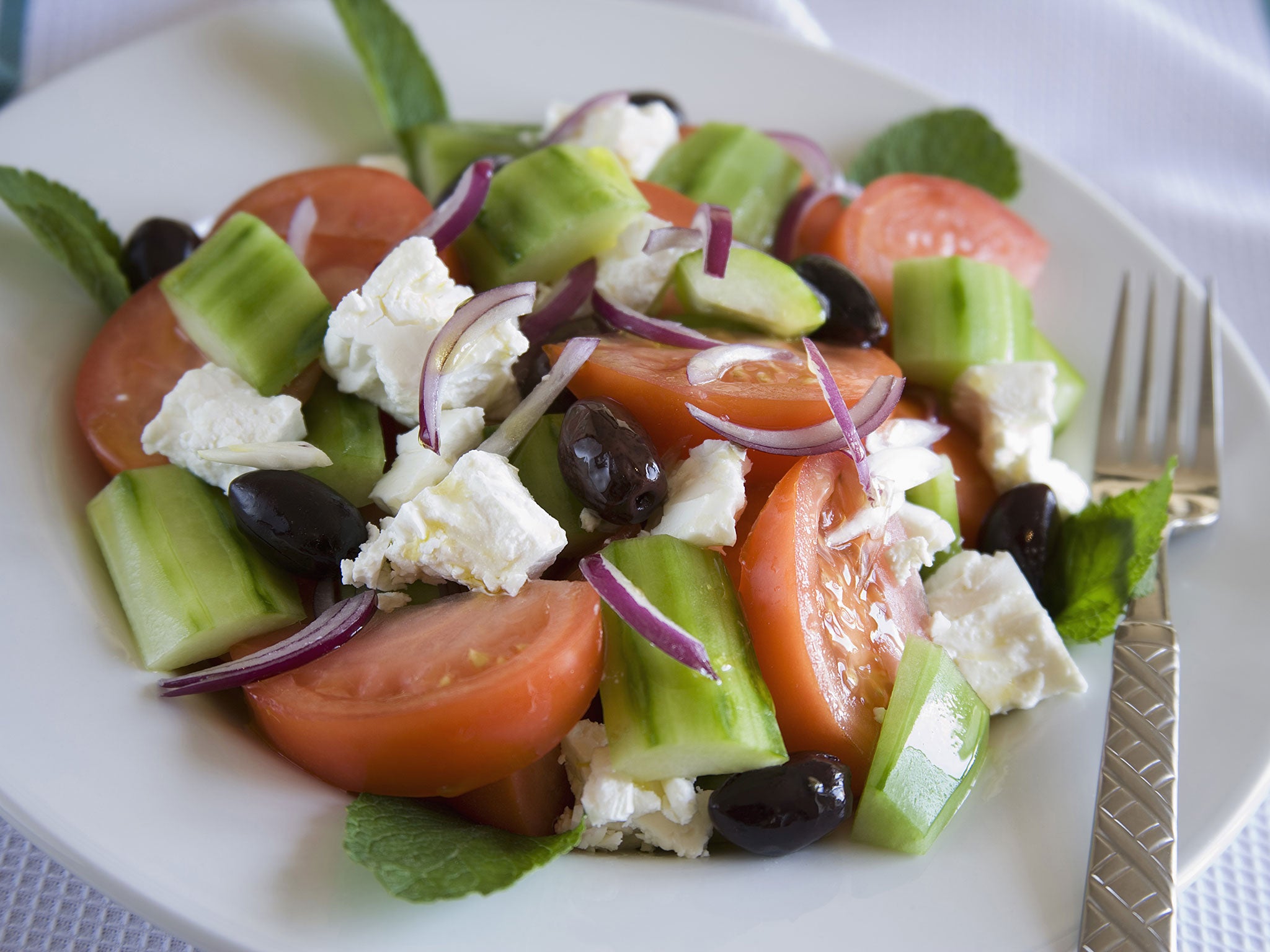Why is a Mediterranean diet so good for you? Scientists think they know
Olive oil and lettuce is the key to keeping blood pressure down

Your support helps us to tell the story
From reproductive rights to climate change to Big Tech, The Independent is on the ground when the story is developing. Whether it's investigating the financials of Elon Musk's pro-Trump PAC or producing our latest documentary, 'The A Word', which shines a light on the American women fighting for reproductive rights, we know how important it is to parse out the facts from the messaging.
At such a critical moment in US history, we need reporters on the ground. Your donation allows us to keep sending journalists to speak to both sides of the story.
The Independent is trusted by Americans across the entire political spectrum. And unlike many other quality news outlets, we choose not to lock Americans out of our reporting and analysis with paywalls. We believe quality journalism should be available to everyone, paid for by those who can afford it.
Your support makes all the difference.The Mediterranean diet is widely known to have health benefits but scientists have never worked out what makes it so good for you – until now.
A study led by King’s College London found that the combination of olive oil and salad holds the key to keeping the risk of high blood pressure down.
A large salad with a simple dressing combines the necessary unsaturated fats with nitrate-rich vegetables.
The findings were published in journal Proceedings of the National Academy of Sciences in the USA by scientists at Kings College, the University of California and University of Pittsburgh.
They suggest that the protective effect of the Mediterranean diet comes from the nitro fatty acids it generates, which inhibit an enzyme linked to high blood pressure.
A Mediterranean diet typically includes unsaturated fats found in olive oil, nuts and avocadoes, along with vegetables like spinach, celery and carrots that are rich in nitrite and nitrates.
The study used mice to investigate how the acids lower blood pressure by seeing whether they inhibited an enzyme called epoxide hydrolase, which can raise blood pressure.
Dr Sanjay Thakrar, a research adviser at the British Heart Foundation, which co-funded the research, said: “The results showed a way in which a particular compound could combat high blood pressure, which is a major risk factor for heart disease.
“However, more work is necessary as these experiments were conducted in mice and this compound could also be having its effect through other pathways.”
Join our commenting forum
Join thought-provoking conversations, follow other Independent readers and see their replies
Comments